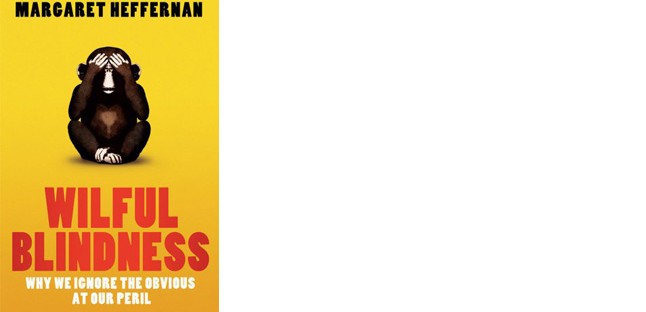Latest posts
A masterclass in creating value
What’s going on at parkrun?
Virtue-signalling all the way to the bank
Bud Light: brand purpose or virtue-signalling?
The Coddling of the American Mind, by Greg Lukianoff and Jonathan Haidt
Belonging, by Owen Eastwood
Such a simple thing
The Long Win, and The Scout Mindset
The Cult of We by Eliot Brown and Maureen Farrell
Coffee and covid modelling
By theme
Marketing strategy
Insight & metrics
Innovation & inspiration
Brand & positioning
Marketing communications
Business purpose
Leadership
By industry sector
Financial services
Retail
FMCG
Technology & start-ups
Consumer services
Business to business
Other sectors
By type
Books
Comment
Quotes
Thought leadership
This book explains how ordinary, decent people end up doing really bad stuff at work, while others find it easy to turn a blind eye to the wrongdoing. The best, or worst, stories are about how a cumulation of little steps can lead to disaster. In the case of the Texas City oil refinery disaster, it was an accumulation of non-steps: people not daring to question, or to answer back, or to tell the truth that they knew wasn’t welcome.
The FT describes the book as “a polemic against the dangers of docility and group think in every walk of life.” These are two quite different but equally risky phenomena. We can become docile because of respect for hierarchy, or fear of authority, or a genuine but naïve belief that if the higher-ups think it’s ok then it must be. This is different from group think, where we simply fail to imagine different scenarios, or we are reassured by the conviction of others – a self-fulfilling situation. Remember when everyone in the UK thought house prices could only go up… until they collapsed? This has happened more than once, but still we take comfort from the certainty of everyone else.
Although UK-based, Heffernan is well-connected in the USA, and has collected fascinating first-person accounts that include New Orleans flood prevention efforts, the fiscal acrobatics at Enron, asbestos contamination in a Montana mining town, and crazy working practices in the gaming industry. Heffernan illuminates these situations but not to blame people for falling into the trap of wilful blindness. Instead she lays bare how it happens. She profiles those who dare to see, and to say what they are seeing. She has interviewed whistleblowers in the NHS, for example, and reveals the danger of a rigid hierarchy in which protecting your colleagues is more valued than people’s lives. This theme is also thoroughly explored in Matthew Syed’s book, Black Box Thinking, reviewed here. He contrasts the attitude to error in healthcare with the learning culture of aviation industry. One wonders whether, if surgeons’ lives were on the line as pilots’ are, the world of healthcare might become a bit safer.
There aren’t any easy answers, though understanding how wilful blindness happens – indeed, that it happens – is surely the first step in avoiding it. If you think this all sounds rather depressing, there is hope. The book’s final chapter provides a round-up of ways that organisations can tackle the problem. Ultimately, and perhaps most importantly, organisations are collections of individuals. The stories in this book show how thousands of people can act as if they are powerless, but sometimes just one courageous person can change everything. That is inspiring.
If you have the appetite for more reading on how one person can make a difference, try Inadequate Equilibria by Eliezer Yudkowsky. He’s a US-based academic and at times it’s quite abstruse but for those in business, especially trying to innovate, it’s stimulating and encouraging.
Latest posts
A masterclass in creating value
What’s going on at parkrun?
Virtue-signalling all the way to the bank
Bud Light: brand purpose or virtue-signalling?
The Coddling of the American Mind, by Greg Lukianoff and Jonathan Haidt
Belonging, by Owen Eastwood
Such a simple thing
The Long Win, and The Scout Mindset
The Cult of We by Eliot Brown and Maureen Farrell
Coffee and covid modelling
By theme
Marketing strategy
Insight & metrics
Innovation & inspiration
Brand & positioning
Marketing communications
Business purpose
Leadership
By industry sector
Financial services
Retail
FMCG
Technology & start-ups
Consumer services
Business to business
Other sectors
By type
Books
Comment
Quotes
Thought leadership
